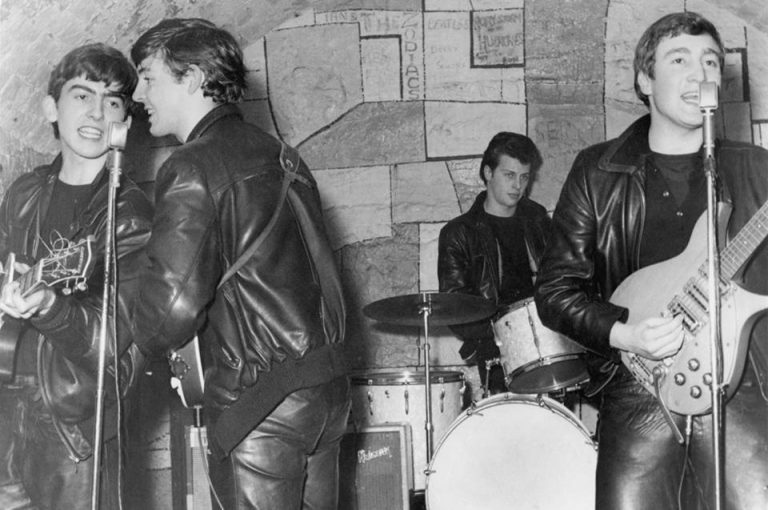
In the brisk Liverpool air of November 9, 1961, a cultural metamorphosis was about to take place in the subterranean buzz of The Cavern Club. Brian Epstein, a local record store owner with an unassuming demeanor but a razor-sharp vision for the future of music, descended the stairs into the heart of the city’s vibrant music scene. What he found was a quartet that would not only redefine his career but also the contours of rock ‘n’ roll itself.
It was The Beatles, clad in leather, exuding an unpolished charisma, who captivated Epstein. While the thumping of the bass drum and the jangle of guitars filled the air, it was the potential that filled Epstein’s mind. These weren’t just lads playing covers; they were, in Epstein’s eyes, the embodiment of a new era waiting to be ushered in. His intuition whispered that beyond the sweat and the raw chords, there was a phenomenon waiting to burst forth.
With a handshake and a shared vision, Epstein and The Beatles began a journey that would transcend the confines of The Cavern. He traded their leather jackets for suits and ties, their bar gigs for television spots, and transformed the band’s energy into a polished act ready for the global stage. When George Martin’s ears met the raw tapes presented by Epstein, the music industry’s gears turned in a new direction. Under Epstein’s guidance, The Beatles crafted a sound that resonated across oceans, and the fervor that followed them outgrew even the wildest of expectations.
But the relationship between Epstein and The Beatles was more than just business; it was a fusion of trust and talent. Epstein’s belief in the band was unwavering, even as he fought to secure them a record deal in the face of numerous rejections. His persistence paid off, and it wasn’t long before “Please Please Me” soared up the charts, affirming his instincts.
Epstein’s role in the saga of The Beatles is more than that of a manager who struck gold. He was the architect who saw beyond the underground gigs and into the stadiums that would later echo with the screams of fans. He knew that The Beatles were not just a band to be heard, but a cultural force to be seen and experienced.
The loss of Epstein in 1967 sent ripples through the music world, a poignant reminder of the fragility of life. Yet, The Beatles’ journey from that November day at The Cavern to the zenith of music is a testament to Epstein’s vision and commitment. In the echoes of their songs, in the cultural shift they ignited, Epstein’s legacy endures.
For those who tread the boards of The Cavern today, the venue is more than a landmark; it’s a chapter in a story that continues to inspire. Brian Epstein’s discovery and his dedication to The Beatles was a cornerstone in the building of modern pop culture. Rolling Stone, in its chronicling of music’s evolution, often revisits that November day, recognizing it as the turning point when a band from Liverpool, with a little help from a visionary manager, set the tempo for the symphony of modern music.




Leave a Reply